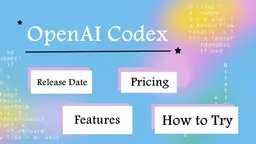Lazy AI Introduzione
Lazy AI è una piattaforma che consente agli utenti di costruire e distribuire applicazioni web full-stack utilizzando richieste in linguaggio naturale e assistenza AI.
Visualizza AltroCos'è Lazy AI
Lazy AI è uno strumento innovativo per lo sviluppo software che rivoluziona il tradizionale processo di creazione delle app. Consente agli utenti di costruire e modificare applicazioni web, agenti AI, automazioni e chatbot utilizzando richieste in linguaggio naturale invece di scrivere codice da zero. La piattaforma sfrutta l'intelligenza artificiale per interpretare le istruzioni degli utenti e generare codice sia front-end che back-end, rendendo lo sviluppo software accessibile a chi ha competenze tecniche limitate. Lazy AI mira a semplificare e accelerare il percorso di creazione delle app, offrendo una gestione semplificata per le fasi di test e produzione.
Come funziona Lazy AI?
Lazy AI funziona come un ingegnere software potenziato dall'AI che interpreta richieste in linguaggio naturale dagli utenti per creare applicazioni web funzionali. Gli utenti forniscono istruzioni dettagliate sulle caratteristiche e funzionalità desiderate della loro app, e Lazy AI traduce queste istruzioni in codice. La piattaforma supporta sia lo sviluppo front-end che back-end, consentendo la creazione di applicazioni full-stack. Lazy AI offre anche flussi di lavoro e modelli preconfigurati per compiti comuni degli sviluppatori, semplificando ulteriormente il processo di sviluppo. Una volta che un'applicazione è costruita, gli utenti possono distribuirla nel cloud con un solo clic, semplificando l'intero ciclo di vita dello sviluppo dall'ideazione alla produzione.
Benefici di Lazy AI
Lazy AI offre numerosi vantaggi ai suoi utenti, principalmente democratizzando lo sviluppo software. Riduce significativamente il tempo e le competenze tecniche necessarie per costruire applicazioni web, consentendo a individui e aziende di dare vita rapidamente e in modo conveniente alle loro idee. L'uso di richieste in linguaggio naturale da parte della piattaforma la rende accessibile ai non sviluppatori, consentendo a un numero più ampio di persone di creare soluzioni software. Per gli sviluppatori esperti, Lazy AI può aumentare la produttività automatizzando compiti ripetitivi e fornendo un ambiente di prototipazione rapida. La funzione di distribuzione con un clic semplifica il processo spesso complesso di lancio delle applicazioni, mentre la possibilità di modificare app esistenti con richieste facilita la manutenzione e gli aggiornamenti. In generale, Lazy AI consente agli utenti di concentrarsi su innovazione e creatività piuttosto che rimanere bloccati nei dettagli tecnici di implementazione.
Tendenze del traffico mensile di Lazy AI
Lazy AI ha registrato un aumento del 51,6% nelle visite mensili, raggiungendo quota 98,6K. L'introduzione di nuove funzionalità nel flusso di conversazione del builder e il lancio di agenti AI personalizzabili hanno probabilmente contribuito a questa crescita migliorando l'esperienza utente ed espandendo la sua utilità.
Visualizza storico del traffico
Visualizza altro











